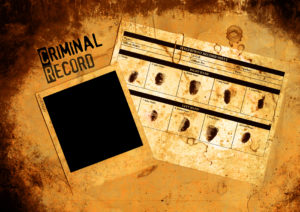Sealing Your Arrest Record in California Under PC 851.91 (The CARE Act)

How to Seal Your Arrest Record Under PC 851.91
Every year in California, more than one million people are arrested or cited for a variety of criminal charges and face prosecution. However, in tens of thousands of cases, criminal charges are not filed by the District Attorney’s office. In thousands of others, criminal charges are filed but later are dismissed by the prosecution for many different reasons. When criminal charges are not filed after someone has been arrested, the accused feels vindicated. When a criminal case goes through the court system and charges are dropped prior to a trial taking place, the accused is often elated.
However, what many people do not understand is that if you fail to take legal action to protect your criminal record, the details of your arrest and prosecution will likely remain to haunt you for the rest of your life.
Having an arrest record can affect your ability to:
- Obtain employment
- Be accepted into certain colleges and universities
- Pursue opportunities to advance in your career by attaining professional certifications
- Join different branches of the military, and
- Obtain a security clearance
Recent studies show more than two-thirds of companies conduct criminal background checks on potential employees, and many of those businesses said they do not allow candidates a chance to explain their criminal record.
That is why you should speak to an experienced criminal defense attorney about having your arrest record sealed. Under California Penal Code Section 851.91, you may be able to have your arrest record sealed if you were not convicted of the crime you were arrested for.
What is PC 851.91? (The CARE Act)
California Governor Jerry Brown signed Senate Bill 393 into law on October 12, 2017. The law, referred to as The CARE Act, took effect on January 1, 2018.

SB 393 changed the language of various subsections of California Penal Code Section 851 by amending sections 851.87, 851.90, 1000.4, 1001.9 and 11105 of the law and adding sections 851.91 and 851.92. These changes to the law make it easier than ever for you to seal your arrest record if you were not convicted of the crime you were arrested for.
Sealing your arrest record will result in your arrest being considered “not to have occurred,” which means you can honestly answer “no” if prospective employers, landlords, state licensing agencies or insurance companies ask if you have ever been arrested (with the exception of employment as a peace officer or licenses issued by state or local agencies). If your arrest record is sealed under PC 851.87, members of the public will not be able to see your arrest on background checks.
Are You Eligible to Have Your Arrest Record Sealed Under PC 851.87?
Under PC 851.87, your arrest record can be sealed as a “matter of right” if any of the following circumstances are true in your case:
- You were arrested but no criminal charges were ever filed against you
- Criminal charges were filed against you but the charges were later dismissed
- Criminal charges were filed against you but you were acquitted or found not guilty at trial
- You were convicted of the crime, but the conviction was reversed or vacated on appeal, or
- The charges against you were dismissed after you successfully completed a pretrial diversion program such as Prop 36 drug treatment or deferred entry of judgment under PC 1000
There are some exceptions to PC 851.87 that would make you ineligible to have your arrest record sealed. Those exceptions include:
- You could still be charged with the offense you were arrested for because the statute of limitations has not expired or the district attorney can refile charges
- You were charged with murder or any other serious offense where there is no statute of limitations (unless you were acquitted or found factually innocent)
- You “intentionally evaded” law enforcement’s efforts to prosecute the arrest (such as by fleeing)
- You have a history of arrests or convictions for domestic violence, child abuse or elder abuse
PC 851 defines a “pattern” of domestic violence, child abuse or elder abuse offenses as two or more convictions or five or more arrests within three years from at least one of the other convictions or arrests. If this applies to you, do not give up on having your arrest record sealed. In these cases, a judge may still allow you to seal your arrest record if it is proven that doing so would serve the interests of justice.
It is important that you know sealing your arrest record under PC 851.87 is only an option for you if the arrest did not result in a conviction. If you were convicted of the crime you were arrested for, you should speak to an experienced criminal defense attorney about other possible options to have your criminal record expunged.
Our skilled and knowledgeable criminal defense attorneys at Wallin & Klarich can help you determine if you are eligible to have your arrest record sealed. Contact our law firm today so we can answer your questions about sealing your arrest record.
The Process for Sealing Your Arrest Record Under PC 851.91

Although the changes in the law allow you to seal your arrest record as a “matter of right,” it does not mean that your arrest record will automatically be sealed if you are not convicted of the crime. You should speak to an experienced criminal defense attorney who can walk you through the court process of filing a petition to seal your arrest record under PC 851.91.
Under the statute, your attorney must file the petition in the court where charges based on the arrest were filed or in the city or county where the arrest occurred. A petition to seal your arrest record must be served on both the law enforcement agency that made the arrest and the prosecuting attorney in the city or county in which the arrest occurred.
Your petition must include:
- Your name and date of birth
- The date of your arrest
- The city and county where your arrest took place
- The name of the arresting law enforcement agency
- Any additional information about your arrest, including the case or court number
- The alleged offenses upon which the arrest was based or charges were filed
- A statement that you are entitled to have your arrest sealed as a matter of right or a statement showing that the interests of justice would be served by granting your petition to seal your arrest record
Once a petition to seal an arrest record based on serving the interests of justice is received by the prosecuting attorney, he or she could request a hearing to contest the petition, which must take place within 60 days of the petition being served upon the prosecuting attorney.
At the hearing, a judge will examine your arrest record and determine whether the interests of justice will be served by granting your petition. The prosecuting attorney may present evidence to the court at this hearing. That is why it is critical that you hire a skilled criminal defense attorney to represent you. Your attorney will present evidence to support your argument that granting your petition is in the best interest of justice in an attempt to have your petition granted.
Frequently Asked Questions Regarding Sealing Your Arrest Record Under PC 851.91
The process for sealing an arrest record is complicated and it can be difficult to tell which option for cleaning up your record is best for you. Our criminal defense attorneys at Wallin & Klarich have been successfully helping clients clean their criminal records for more than 40 years. That is why our skilled lawyers receive many questions from people interested in sealing their arrest records.
Here are some of the questions our skilled criminal defense lawyers at Wallin & Klarich receive most often regarding PC 851.91 along with the answers to those questions:
Is sealing your arrest record under PC 851.91 different from a Factual Innocence Motion under PC 851.8?

Senate Bill 393 was passed because people who were arrested for a crime but not convicted had few options for sealing their arrest record. Arrest records can be sealed under California Penal Code Section 851.8, but in order to have an arrest record sealed under this statute, the petitioner must prove to the court that he or she was “factually innocent” of the crime, even if he or she was never convicted of the crime.
Penal Code Section 851.91 is much different. This law allows you to seal your arrest record as a “matter of right” if you were not convicted of the crime you were arrested for. To have your petition to seal your arrest record granted, your attorney only needs to show the judge that the arrest did not result in a conviction. The burden is on the prosecution to prove to the court that it is not in the best interests of justice to grant your petition to seal your arrest record.
What will the court consider a “history” of domestic violence, child abuse or elder abuse?
You may not be eligible to have your arrest record sealed if you have displayed a history of domestic violence, child abuse or elder abuse. The court considers a “history of domestic violence, child abuse or elder abuse” to be:
- Two or more domestic violence, child abuse or elder abuse convictions within three years, or
- Five or more domestic violence, child abuse or elder abuse arrests within three years
However, if it is determined that you have displayed a pattern of domestic violence, child abuse or elder abuse, the court could seal your arrest record if it serves the best interest of justice. To decide whether sealing your arrest record would serve the interests of justice, the court will consider:
- Any hardship the arrest has caused you
- Evidence that shows you are of good character
- Evidence surrounding your arrest, and
- Your record of prior convictions
That is why it is important to hire an experienced criminal defense attorney to help you file a petition to seal your arrest record. A skilled Wallin & Klarich lawyer will gather the necessary evidence and present it to the court.
Does PC 851.91 allow you to seal your juvenile record?
The process for sealing a juvenile arrest record is different from PC 851.91. In order to have your juvenile record sealed, you must follow the process under Welfare and Institutions Code 781.
Under WIC 781, you may be eligible to have your juvenile record sealed if you:
- Are 18 years of age or older or five years have passed since the jurisdiction of the juvenile court terminated
- Have not been convicted of any misdemeanor or felony crimes of moral turpitude as an adult, and
- Were not convicted in juvenile court of a serious criminal offense such as murder, torture or robbery that occurred after you had turned 14 years old
Speak to our knowledgeable criminal defense attorneys at Wallin & Klarich today to find out how we may be able to help you seal your juvenile record.
How long does the process of sealing your arrest record take under PC 851.91?

The entire process of sealing your arrest record under PC 851.91 typically takes about 90 days after your petition is filed. If you hire Wallin & Klarich, our attorneys will promptly begin working on your case so that your petition to seal your arrest record can be filed in a timely manner.
If your petition is granted, the court will notify the California Department of Justice, the arresting law enforcement agency and the agency that handles criminal records within 30 days. These agencies will update your record to note that the arrest has been sealed and the file will be marked so that it may not be released.
Is there anyone who can still see my arrest after my arrest record is sealed?
Although your arrest record will be sealed if your petition is granted under PC 851.91, it is not erased entirely. If sealed, your arrest record may:
- Be used against you if you are subsequently prosecuted for any new offense
- Be accessed by a criminal justice agency in the regular course of its duties and disclosed to other law enforcement agencies to the same extent as if it had not been sealed
In addition, you are obligated to disclose your arrest if asked when applying for:
- Public office
- Employment as a peace officer
- Licensing by any state or local agency, and
- A contract with the California State Lottery Commission
You also should note that a single petition for sealing your arrest record will only apply to one arrest. You will need to file a separate petition to seal your arrest record for each time you were arrested.
Is there a deadline for sealing my arrest record?
In order to obtain a factual innocence motion under PC 851.8, you must file a petition within two years from the date of your arrest or, if charges were filed, two years from the time charges were filed. However, PC 851.91 does not indicate any deadline for filing a petition to seal your arrest record.
Therefore, it is possible to seal your arrest record as soon as it is no longer possible for the prosecutor to file or refile charges. What this means is that your attorney will have to determine when the statute of limitations will expire for the crime for which you were arrested. You cannot file your motion to seal your arrest record until the prosecutor can no longer legally file the charges due to the expiration of the statute of limitations.
Contact Wallin & Klarich Today to Discuss Sealing Your Arrest Record

Having an arrest on your record could have a negative impact on you for the rest of your life. That is why you should speak to an experienced criminal defense attorney about your options for cleaning your arrest record. Our lawyers at Wallin & Klarich have more than 40 years of experience successfully helping our clients clean their criminal record. Contact our law firm today so we can determine if you are eligible to have your arrest record sealed.
With offices in Orange County, Riverside, San Bernardino, Victorville, West Covina, Torrance, Los Angeles and San Diego, our criminal defense attorneys at Wallin & Klarich are available to help you no matter where you work or live.
Contact our office today at (877) 466-5245 for a free phone consultation regarding your case. We will be there when you call.

